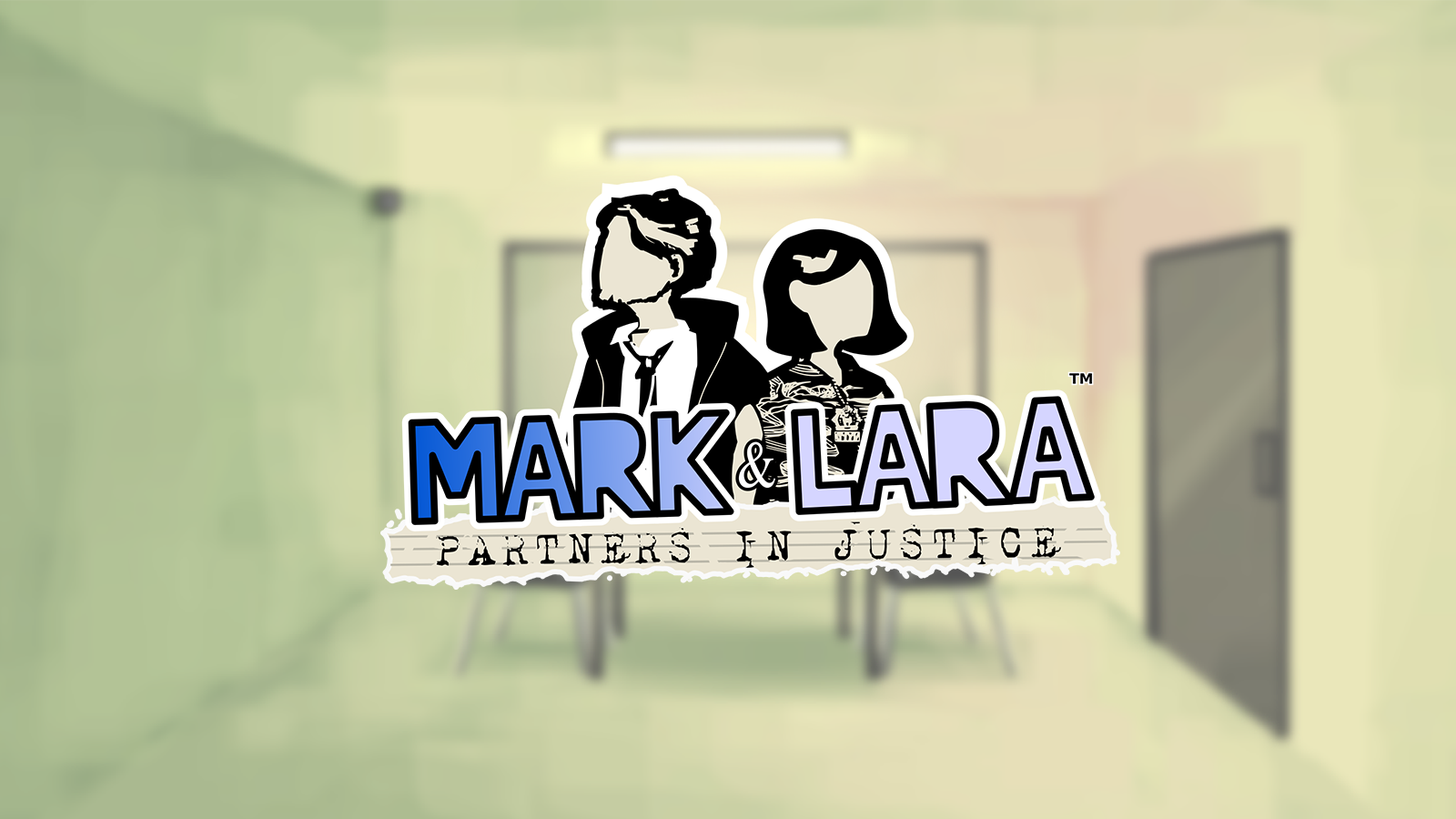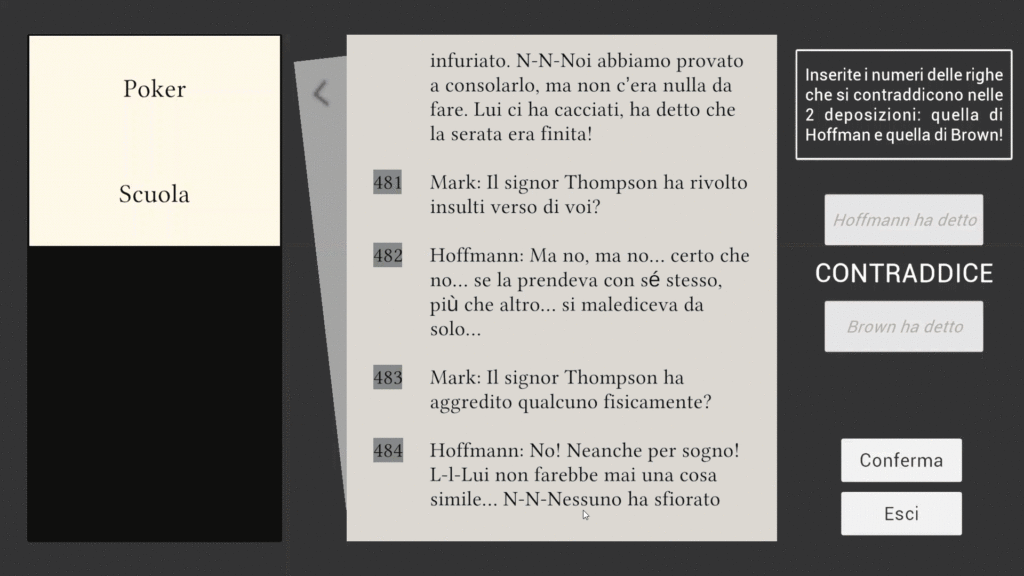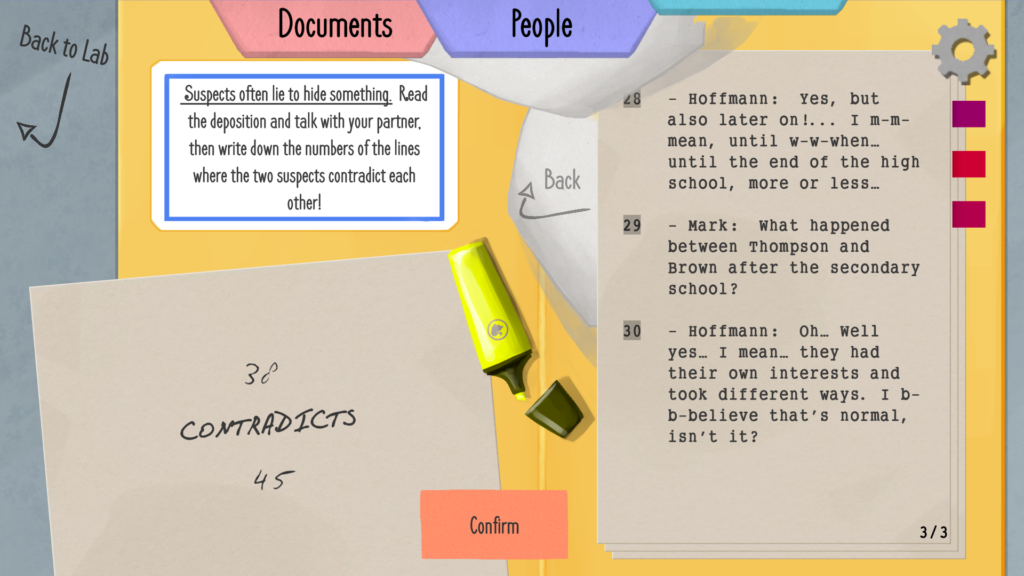Creating a video game is a long and complicated process that requires the collaboration of many people with different backgrounds and talents who find themselves building together something much greater than themselves.
We at Deep Monolith recently faced, on April 16, 2021 to be exact, the biggest challenge of an indie game developer: to finish something .
In this article, I will retrace our 1.5-year-long Odyssey for the production and release of the cooperative Detective video game Mark & Lara: Partners In Justice exposing all our mistakes and inaccuracies but also the positive things we have done.
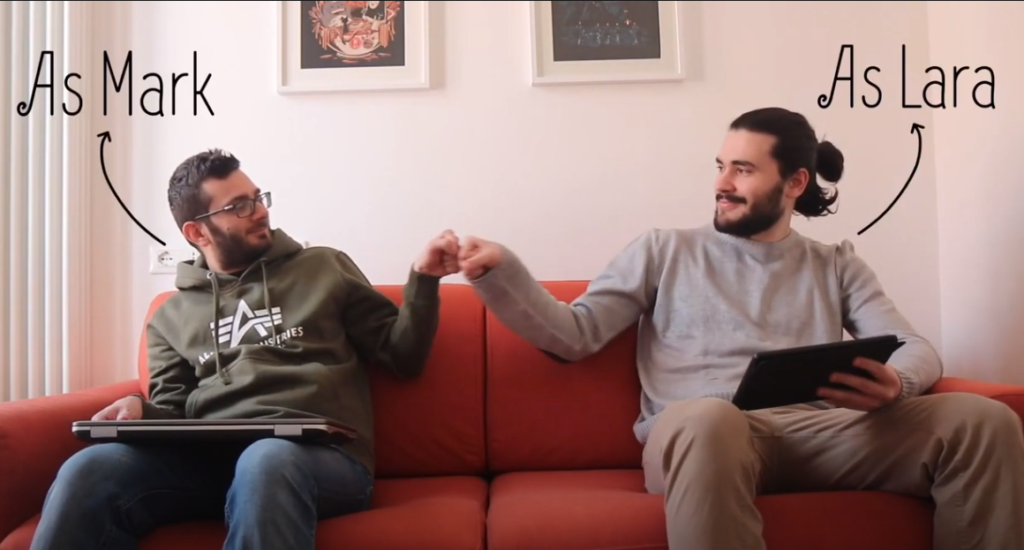
The development process
Below is the flow chart kindly granted by Italian Party of Indie Developers , which illustrates all the development phases of a video game. We think it’s a good starting point for setting up your project!
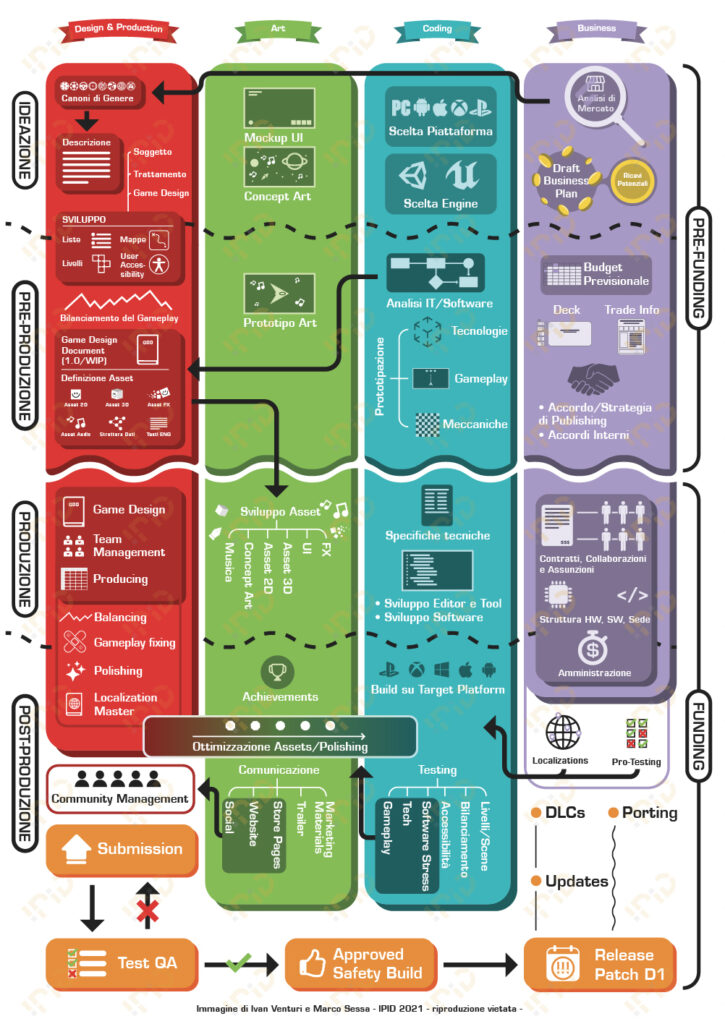
Below you will find our considerations for the 4 phases of the project: Concept, Pre-production, Production, Release (Post-production)
Project conception
In my humble opinion, this is the most important phase of the project and must be done in a particularly meticulous way. Remember: a well done design phase can save you years of developing an unprofitable project or make you rich!
ERROR: At this stage we should have been more pragmatic: doing market research , drafting a business document (containing expected costs, expected revenues, financing methods) and validating the idea. The key word in this phase is DATA! You probably won’t come up with a lot of data. Well few data are better than 0 data!
BONUS: We have set some limits not to be exceeded: project length, money to invest in it, etc… If you are just starting out, create a project with duration of a few months. Our project was released after 1 and a half year from its conception, but we actually did 6 months of net development.
BONUS: We focused on a simple mechanic that makes the game different from all the others , the so-called “elevator pitch“.

Pre-production phase

In the pre-production phase we prepare for the party: team members are chosen, prototypes are made, internal agreements are established and many documents are prepared. This phase is important although it is easy to mix / skip in favor of the next phase, in fact it is the phase in which we have made the most mistakes!
If the video games were a car, the team members would be its wheels! Choose your team members carefully.
ERROR: This phase was practically skipped by us, as we already had the full team and we didn’t ask ourselves the question: Is this person perfect for this role? Choosing team members incorrectly can cause many problems including: lack of technical skills, waste of time ‘chasing’ people, headaches and muscle aches.
ERROR : This phase is done to make arrangements with team members. Will you pay employees every month? Will you give him a slice of the game’s revenue? Well, whatever, write it down. Not like we did!
MISTAKE: Set up hierarchies and divide tasks, avoid “bottlenecks”. A big problem we had was on staff management: who has the last word? Who decides deadlines?
In the example of the car above, the roles and hierarchies determine the engine, the body, etc!
ERROR: We haven’t solved many unknowns in due course. Translations? Release platforms? Create the necessary documents to better plan the project .
ERROR: Choose your working methodology and stick to it! We used the Scrum agile methodology , but failed to stick to it due to a lack of hierarchies . Technically successful operation, but the patient died.
ERROR: Select the right software . Starting from the engine you use, up to the communication methods. For example, we had communication problems because there were those who used Whatsapp, who Slack and who Telegram.
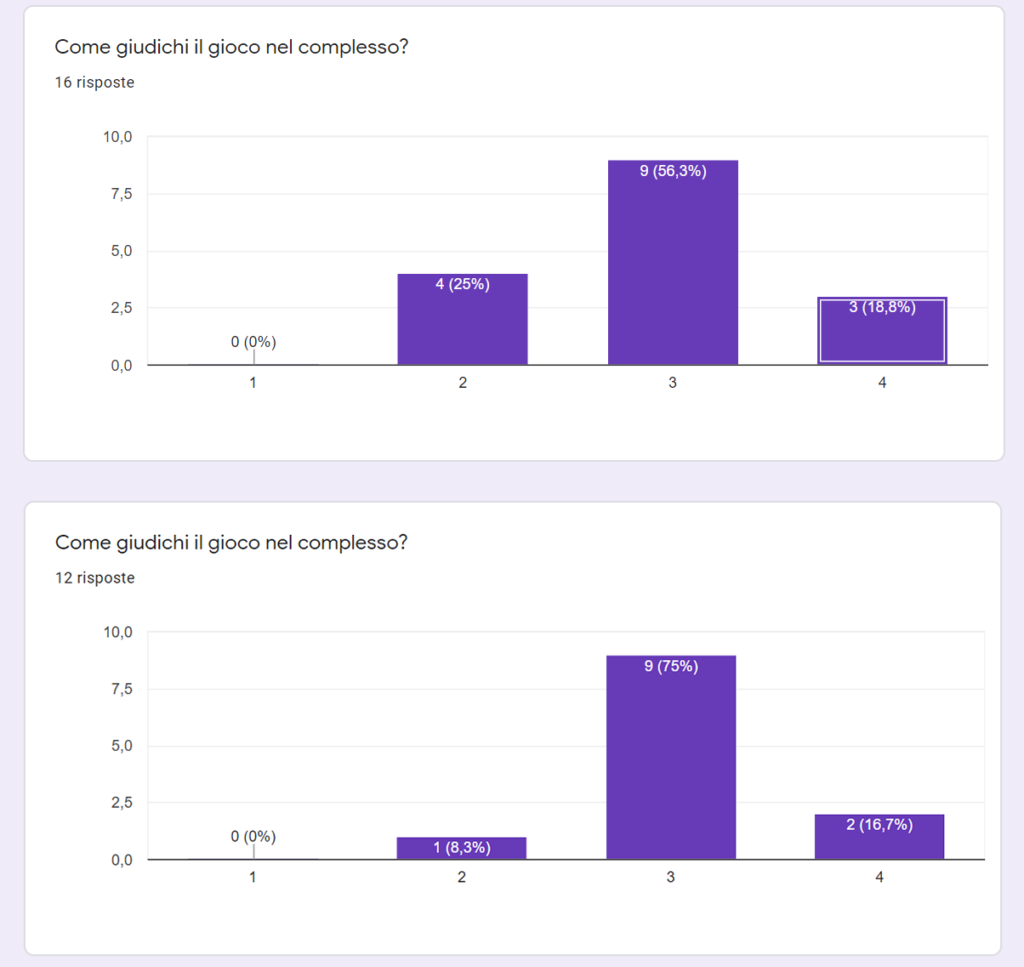
BONUS: One thing we have done particularly well is the playtest. As in the conception phase, even here the data will help you not to go off the rails and stay on the right path. We’ve had more than 100 people test the game and have gotten great data for both gaming and marketing!
Production Phase
The production phase is generally the longest of the game creation process and requires strict rules that each team member must follow.
ERROR: We only created the Steam page 2 weeks before release, this was a mistake as we lost potential customers who could have wishlisted. It is never too early to start advertising the game. Stick to the Marketing Plan you made in the pre-production phase and design a funnel that brings together your potential customers.
ERROR: We do not have contact with press and influencers in time. It’s always a good time to connect with others, they can help by sharing your posts, giving you game advice and further exposure to your audience.
BONUS: We have built authentic relationships! Don’t just copy a pre-made post to each influencer: spend time and try to create a long-term relationship with them. Take part in their initiatives, share and like their posts. It may be the best time spent on the whole project!
Release Phase
If you have planned the project well, this will be a fairly quiet phase. But it can quickly become a nightmare if you have made mistakes!
ERROR: We spent € 1400 on Facebook ads. It is possible to make a good campaign even if you do not contact an expert, however you have to study well how the algorithm works. In particular, we have staked everything on a few ads, instead of doing small tests and seeing which part of the market was more profitable!
ERROR / BONUS: We have respected the deadline we set ourselves, studying the best time to release the game. However, having little time, we ended up with absurd working hours to meet the deadline, sacrificing some things that could be done better, such as ads campaign, quality assurance, press & influencer marketing.
BONUS: Choose the right price for your game. When choosing the price, take into account the discounts you will have to apply and what your game offers. Usually indie games tend to keep the price too low, which negatively affects the total revenue.
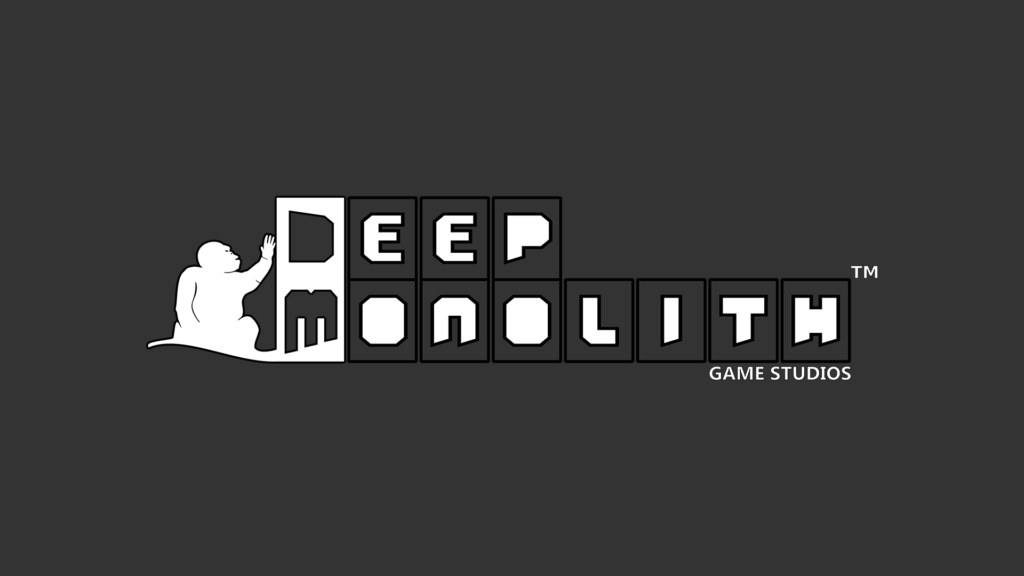
I hope this article will be helpful for anyone who wants to seriously start being an indie game developer!
Thanks for reading and we would be happy to hear your feedback to see if it was useful to you and how we can improve!
